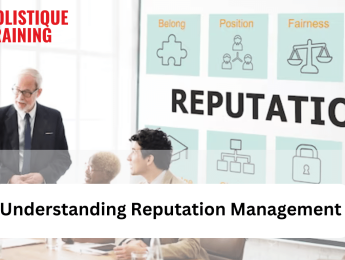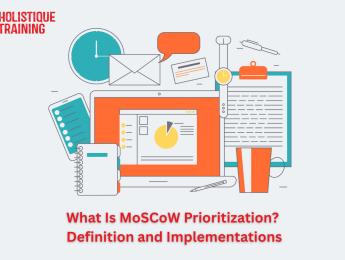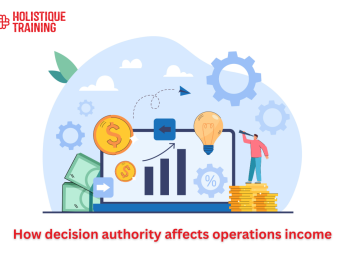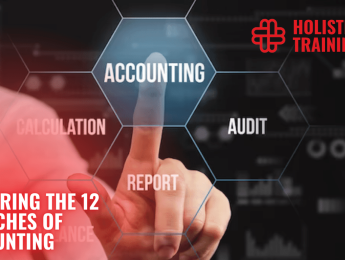- Table of Contents
- Understanding Reputation Management
- The Significance of Corporate Reputation
- Consumer Trust and Loyalty
- Talent Attraction and Retention
- Investor Confidence
- Partnerships and Collaborations
- Crisis Resilience
- Competitive Edge
- Public Perception and Advocacy
- Long-Term Sustainability
- Unveiling the Causes of a Bad Reputation
- 1- Product and Service Issues
- 2- Customer Complaints and Poor Service
- 3- Unethical Business Practices
- 4- Data Breaches and Privacy Concerns
- 5- Negative Publicity and Media Coverage
- 6- Employee Misconduct
- 7- Environmental and Social Impact
- 8- Competitor Smear Campaigns
- 9- Lack of Transparency and Communication
- The Elements That Shape Reputation
- a) Product and Service Quality
- b) Ethical Practices
- c) Customer Experience
- d) Corporate Culture
- e) Innovation
- f) Communication
- g) Social Responsibility
- Navigating Corporate Reputation Management
- 1- Assessment
- 2- Define Goals
- 3- Identify Target Audience
- 4- Strategy Formulation
- 5- Consistent Messaging
- 6- Proactive Monitoring
- 7- Crisis Management
- 8- Employee Involvement
- 9- Continuous Improvement
- 10- Leveraging Technology
- Leveraging Reputation Management Software
- Corporate Reputation in the AI Era
- Conclusion
Introduction
In the labyrinth of modern business, where information flows freely and opinions are shared at the speed of light, the concept of corporate reputation management has ascended to a position of paramount importance. The digital age has bestowed both opportunities and challenges upon organisations, underscoring the need to actively sculpt and safeguard their image. Within the contours of this comprehensive guide, we will delve into the intricate tapestry of corporate reputation management, exploring its significance, dissecting the root causes of a tarnished image, deciphering the fundamental constituents of a company’s reputation, deciphering the art of reputation management, outlining the blueprint for a potent reputation management strategy, shedding light on the indispensable role of reputation management software, and pondering the enduring concept of corporate reputation in the age of artificial intelligence.
Understanding Reputation Management
Reputation management, at its core, is the strategic process of influencing and controlling how an organisation is perceived by its stakeholders, including customers, employees, investors, partners, and the general public. It involves crafting a positive image that aligns with the company's values, ethics, and objectives. A good reputation can bolster customer trust, drive business growth, and foster long-term sustainability.
The Significance of Corporate Reputation
Why does corporate reputation matter so much? In a world saturated with choices, consumers are increasingly turning to a company's reputation to guide their purchasing decisions. A solid reputation not only attracts customers but also attracts top talent, fortifies investor confidence, and cultivates strong relationships with partners and suppliers. A favourable reputation can serve as a protective shield during times of crisis, allowing companies to navigate challenges with more resilience. That is why, according toReview42,
a staggering 87% of executives prioritise the management of reputation risk over other strategic risks. Let’s now discuss the significance of corporate reputation in more detail:
Consumer Trust and Loyalty
A positive corporate reputation is a powerful catalyst for building and maintaining consumer trust. Trust, once earned, becomes a cornerstone for customer loyalty. When consumers trust a brand, they are more likely to choose its products or services repeatedly, fostering a long-term relationship that extends beyond mere transactions.
Talent Attraction and Retention
Beyond consumer relationships, a favourable corporate reputation is instrumental in attracting and retaining top talent. In a competitive job market, prospective employees often consider a company's reputation as an employer before making career decisions. Companies with positive reputations are more likely to draw in high-calibre talent and, once onboard, retain them through a positive work environment and opportunities for growth.
Investor Confidence
Investors, whether institutional or individual, closely scrutinise a company's reputation as part of their due diligence. A positive reputation signals stability, ethical conduct, and potential for growth, bolstering investor confidence. This, in turn, can positively impact a company's stock performance and its ability to secure funding for expansion or strategic initiatives.
Partnerships and Collaborations
Building partnerships and collaborations is an integral part of business growth. A company's reputation plays a pivotal role in the willingness of other organisations to engage in such relationships. Businesses prefer to align themselves with reputable partners, ensuring that shared values and ethical standards contribute positively to both parties' images.
Crisis Resilience
The importance of a solid reputation becomes most evident during times of crisis. Whether facing a product recall, a public relations disaster, or an unforeseen event, companies with positive reputations are more resilient. A well-cultivated reputation acts as a protective shield, helping organisations weather storms with greater ease and recover more swiftly from adverse situations.
Competitive Edge
In a crowded marketplace, where products and services may be similar, a positive reputation becomes a key differentiator. Consumers are inclined to choose companies with a strong reputation over competitors, providing a distinct competitive edge. This advantage is particularly pronounced in industries where trust and ethical considerations heavily influence purchasing decisions.
Public Perception and Advocacy
Corporate reputation extends beyond individual transactions and permeates public perception. Companies with positive reputations are more likely to garner support and advocacy from the public. This can manifest in positive word-of-mouth, social media endorsements, and a generally favourable disposition from the community.
Long-Term Sustainability
A positive corporate reputation contributes to long-term sustainability. Companies that prioritise ethical business practices, environmental responsibility, and social impact are viewed as responsible corporate citizens. This resonates with a growing segment of consumers who prioritise sustainability, ensuring the company's relevance and success in the evolving business landscape.
As the digital age continues to redefine the dynamics of business, corporate reputation stands out as a critical asset. It is not merely a byproduct of successful operations; rather, it is a proactive and strategic effort to shape how a company is perceived by its stakeholders. In a world where information is easily accessible and opinions are formed swiftly, the significance of corporate reputation management becomes a strategic imperative for businesses aiming not only to survive but to thrive in the ever-evolving marketplace.
Unveiling the Causes of a Bad Reputation
In the dynamic and interconnected world of business, where information spreads rapidly through digital channels, the consequences of a bad reputation can be severe and far-reaching. Understanding the root causes of a tarnished image is crucial for companies seeking to proactively manage and safeguard their reputations. Let's delve into the multifaceted reasons that can lead to a negative perception and explore how organisations can navigate these challenges.
1- Product and Service Issues
One of the most direct contributors to a bad reputation stems from problems with the quality or reliability of products and services. Product recalls, frequent malfunctions, or consistently subpar performance can quickly erode consumer trust. Negative experiences with products often lead to widespread dissatisfaction, amplified through online reviews and social media, making it imperative for companies to prioritise quality assurance.
2- Customer Complaints and Poor Service
The way a company handles customer complaints and the overall quality of customer service significantly impact its reputation. Ignoring or mishandling customer grievances can result in negative reviews and a damaging public perception. Companies must invest in robust customer service strategies, promptly addressing concerns and demonstrating a commitment to customer satisfaction.
3- Unethical Business Practices
Unethical conduct, be it in business dealings, marketing strategies, or corporate governance, can be a fast track to a bad reputation. News of dishonest practices, fraud, or legal issues can spread rapidly, causing irreparable harm to a company's image. Upholding a strong ethical framework is not only a moral imperative but also a strategic necessity to maintain trust.
4- Data Breaches and Privacy Concerns
In an era dominated by digital transactions and online engagement, data breaches and privacy concerns are significant threats to corporate reputation. Mishandling customer data, experiencing security breaches, or being involved in privacy scandals can result in a loss of trust. Companies must invest in robust cybersecurity measures and transparent communication to mitigate the fallout from such incidents.
5- Negative Publicity and Media Coverage
The media, both traditional and social, can be a double-edged sword. Negative publicity, whether accurate or not, can severely impact a company's reputation. Mismanagement of crises, lack of transparency, or failure to address issues head-on can exacerbate the negative effects of media coverage. Proactive communication and crisis management strategies are essential to mitigate damage during challenging times.
6- Employee Misconduct
The actions of employees can significantly influence a company's reputation. Instances of employee misconduct, unethical behaviour within the workplace, or a toxic corporate culture can be detrimental. Companies must foster a positive work environment, implement ethical guidelines, and provide ongoing training to ensure that employees understand and uphold the company's values.
7- Environmental and Social Impact
In an era where corporate social responsibility (CSR) is increasingly valued, a company's reputation can suffer if it is perceived as environmentally irresponsible or socially insensitive. Failure to address sustainability concerns, engage in philanthropy, or contribute positively to the community can lead to reputational damage.
8- Competitor Smear Campaigns
Intense competition can sometimes lead to underhanded tactics, including smear campaigns by rivals. Competitors may spread false information or highlight a company's vulnerabilities to gain a competitive advantage. Vigilance and swift, factual responses are essential to counteract such attempts and protect the company's reputation.
9- Lack of Transparency and Communication
Transparency is a cornerstone of building and maintaining a positive reputation. Companies that lack openness in their communication, especially during challenging times, may be perceived as untrustworthy. Clear and honest communication helps to manage expectations, build credibility, and demonstrate accountability.
Navigating these potential pitfalls requires a proactive and strategic approach to reputation management. Companies must not only prioritise ethical conduct and transparency but also invest in measures to prevent, address, and recover from reputational challenges. By being vigilant, responsive, and committed to fostering positive relationships with stakeholders, organisations can build resilience and protect their most valuable asset—their reputation.
The Elements That Shape Reputation
A company's reputation is a culmination of several key elements:
a) Product and Service Quality
At the core of a company's reputation lies the quality and reliability of its products and services. Consistently delivering high-quality offerings not only satisfies customers but also builds a positive reputation. A track record of excellence establishes trust and credibility, creating a solid foundation for enduring relationships with consumers.
b) Ethical Practices
Ethical conduct is a fundamental building block of a positive reputation. Businesses that prioritise integrity, fairness, and responsible business practices earn the respect and trust of stakeholders. From transparent financial dealings to fair treatment of employees and suppliers, ethical practices contribute to a company's credibility and long-term viability.
c) Customer Experience
Providing an exceptional customer experience is a powerful driver of positive word-of-mouth and, consequently, a strong reputation. Customer satisfaction is not only about the quality of the product but also the overall experience—from the ease of purchase to post-sales support. Companies that prioritise customer-centric approaches foster loyalty and advocacy.
d) Corporate Culture
A company's internal culture plays a crucial role in shaping its external reputation. A healthy, inclusive, and positive workplace culture attracts and retains top talent. Employees who feel valued and supported contribute positively to the company's reputation, both as ambassadors and as creators of a positive work environment.
e) Innovation
In a rapidly evolving business landscape, innovation is a key driver of reputation. Companies that consistently push the boundaries, introduce new products or services, and adopt cutting-edge technologies are often perceived as industry leaders. Innovation signals adaptability and a forward-thinking approach, enhancing a company's reputation.
f) Communication
Transparent and honest communication is a linchpin of reputation management. Clear communication, both internally and externally, builds trust and credibility. Companies that effectively communicate their values, objectives, and responses during challenges are better positioned to manage their reputation in the face of adversity.
g) Social Responsibility
Demonstrating a commitment to social responsibility contributes positively to a company's reputation. Whether through sustainability initiatives, community engagement, or philanthropy, businesses that actively contribute to societal well-being are viewed favourably by stakeholders who increasingly prioritise corporate social responsibility.
Understanding how these elements intersect and influence one another is essential for reputation management. A holistic approach that integrates these components allows companies to proactively cultivate and protect their reputation. Additionally, these elements are not static; they evolve over time and require ongoing attention and adaptation to align with changing stakeholder expectations and societal values.
For example, a company known for producing innovative products may see its reputation decline if it neglects ethical considerations in its business practices. Similarly, a business with a strong commitment to social responsibility may face reputational challenges if it fails to address issues related to product quality or customer experience.
In short, the elements that shape reputation are interconnected, dynamic, and integral to the overall success of a business. By consciously nurturing these components, companies can build a positive reputation that acts as a resilient asset in an ever-changing business environment.
Navigating Corporate Reputation Management
Corporate reputation management involves a multifaceted approach aimed at building, safeguarding, and enhancing a company's image. To craft an effective reputation management strategy, consider these steps:
1- Assessment
The journey of effective reputation management begins with a thorough assessment of the current state of the company's reputation. This involves analysing customer feedback, monitoring social media mentions, and gauging industry sentiment. Utilising data analytics tools to gain insights into the public perception of the brand provides a foundation for strategic decision-making.
2- Define Goals
Clear and specific goals are fundamental to any successful reputation management strategy. Whether the aim is to improve customer perception, repair a damaged reputation, or maintain an already positive image, well-defined goals provide a roadmap for the entire process. These goals serve as benchmarks for measuring success and guide the development of targeted strategies.
3- Identify Target Audience
Different stakeholders have different expectations and values. Identifying and understanding key audiences, including customers, employees, investors, and partners, allows companies to tailor their messaging and actions to resonate with the interests and values of each group. A nuanced approach ensures that reputation management efforts are relevant and impactful.
4- Strategy Formulation
Developing a comprehensive reputation management strategy involves outlining the approach to managing reputation across different channels and situations. This strategy should be adaptable, considering various scenarios and potential challenges. It may include elements such as crisis communication plans, brand positioning, and initiatives to actively build a positive image.
5- Consistent Messaging
Consistency in messaging is crucial for building trust and credibility. Whether communicating through the company's website, social media channels, or customer service interactions, a cohesive and consistent message reinforces the brand image. Inconsistencies in communication can lead to confusion and undermine the efforts to shape a positive reputation.
6- Proactive Monitoring
In the digital age, real-time monitoring is imperative for effective reputation management. Employing tools to monitor online conversations, social media platforms, and news related to the brand allows companies to stay ahead of emerging issues. Addressing negative sentiment promptly and professionally is key to mitigating potential damage.
7- Crisis Management
Despite proactive efforts, crises can arise unexpectedly. Having a well-prepared crisis management plan in place is essential. This plan should outline the steps to be taken, the key personnel involved, and the communication strategy during a crisis. A swift and well-coordinated response can minimise the impact of crises on the company's reputation.
Table 1: Metrics to measure the effectiveness of a crisis management plan
Metric | Description |
Response Time | Swiftness of the company's initial reaction. |
Sentiment Analysis | Public perception assessed through sentiment. |
Stakeholder Communication | Effectiveness of communication with key groups. |
Media Coverage | Extent of media attention and its portrayal. |
Reputation Recovery | Success in restoring trust and positive image. |
8- Employee Involvement
Employees are not just internal stakeholders; they are also ambassadors of the company's values. Engaging employees in upholding these values is crucial for a positive reputation. Providing training on ethical conduct, encouraging a positive workplace culture, and empowering employees to be brand advocates contribute to a favourable external perception.
9- Continuous Improvement
The business landscape is dynamic, and stakeholder expectations evolve. Regularly reassessing reputation management strategies and adapting them based on changing dynamics is crucial. Continuous improvement ensures that the company remains agile in responding to emerging challenges and opportunities.
10- Leveraging Technology
In the digital age, technology plays a pivotal role in reputation management. Utilising reputation management software can provide valuable insights into online conversations, customer sentiment, and emerging trends. Automation features streamline the monitoring process, enabling businesses to stay on top of their reputation without being overwhelmed by data.
Navigating corporate reputation management requires a strategic mindset, adaptability, and a commitment to ethical business practices. It's not just about responding to crises; it's about actively shaping perceptions, building trust, and fostering positive relationships with stakeholders. In doing so, companies can cultivate a resilient and positive reputation that serves as a valuable asset in the competitive business landscape.
Leveraging Reputation Management Software
In today's fast-paced digital landscape, reputation management software has emerged as a game-changer. These tools provide insights into online conversations, customer sentiment, and emerging trends, allowing companies to respond swiftly and strategically. Automation features streamline the monitoring process, enabling businesses to stay on top of their reputation without drowning in data.
Corporate Reputation in the AI Era
As we step into the era of artificial intelligence, reputation management is set to undergo significant transformations. AI-powered sentiment analysis tools can process vast amounts of data in real-time, offering insights into customer opinions and perceptions. Predictive analytics can help companies foresee potential reputation risks and take preemptive action. Chatbots and virtual assistants powered by AI can provide consistent and timely customer support, contributing to a positive reputation.
Conclusion
Corporate reputation management is a strategic imperative for businesses in today's digitally interconnected world. A positive reputation fuels growth, builds trust, and provides a competitive edge. By understanding the causes of a bad reputation, acknowledging the key elements that shape reputation, and adopting a comprehensive reputation management strategy, companies can navigate the complex landscape and thrive. Embracing reputation management software and harnessing the power of AI ensures that businesses remain agile and responsive in an ever-evolving environment. As we embrace the future, let us remember that a well-cultivated reputation is an enduring asset that paves the way for sustained success. Elevate your skills in shaping and safeguarding brand image with our course, ‘Developing a Successful Brand Image,’ and unlock the secrets to becoming a reputation management expert! Enrol now or contact us for more information.

























